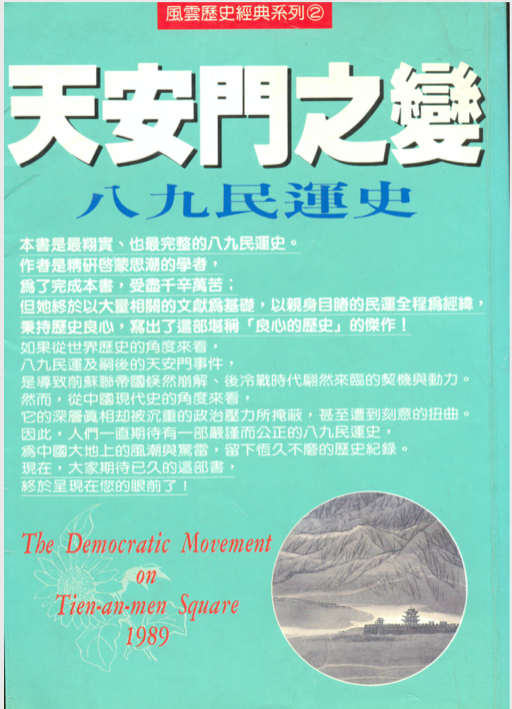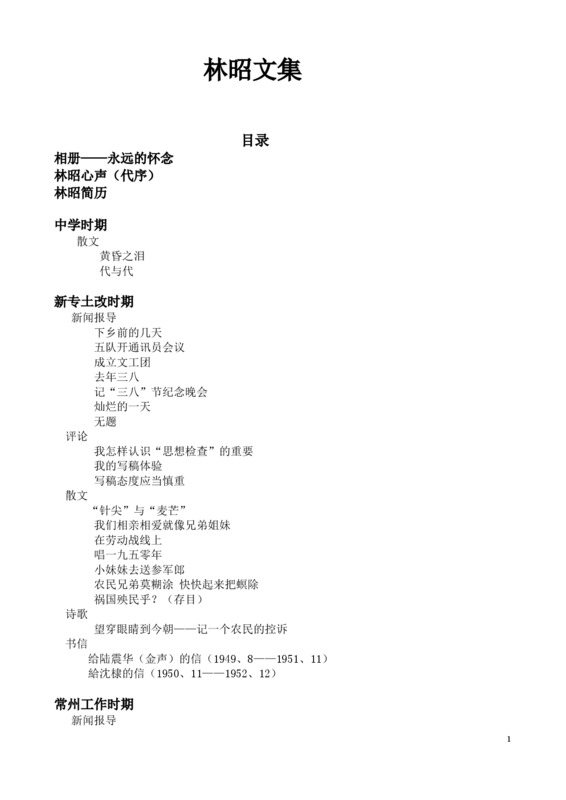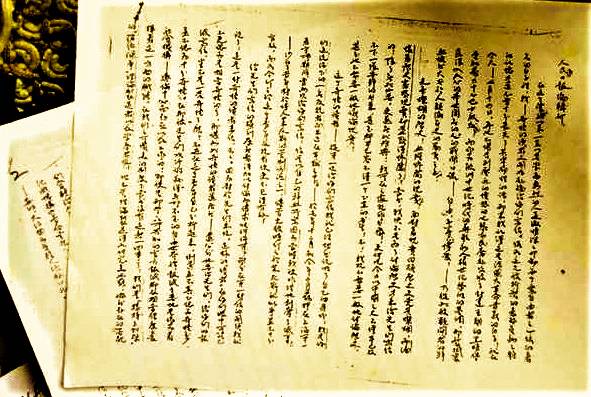Explore the collection
Showing 6 items in the collection
6 items
Book
Captive Spirits: Prisoners of the Cultural Revolution
This book is the memoir of Chinese economist's Yang Xiaokai. It tells the stories of more than two dozen characters he met while imprisoned in Changsha during the Cultural Revolution. Published in 1994, it was reprinted in 1997 and 2016. The English version is titled *Captive Spirits: Prisoners of the Cultural Revolution*, published by Stanford University Press in 1997.
Book
History of the 1989 Democracy Movement
This 10-volume book of 1.3 million words was written by Chen Xiaoya, a former associate researcher at the Institute of Political Science of the Chinese Academy of Social Sciences. The first edition was written in April 1994 and published in Taiwan in 1996, but with just over 200,000 words. Later, Chen Xiaoya revised the book several times to increase its content: starting from 1976, the year of Mao Zedong's death, and covering Hu Yaobang's political career as well as the background of the June Fourth Incident and also adding the contents of the memoirs of the parties involved in the June Fourth Incident. The number of words was increased to 1,360,000 words in 2016 when the book was published. The book was reprinted in 2019.
Purchase link:https://www.amazon.com/%E3%80%8A%E5%85%AB%E4%B9%9D%E6%B0%91%E9%81%8B%E5%8F%B2%E3%80%8B%E3%80%8A%E5%85%AB%E4%B9%9D%E6%B0%91%E8%BF%90%E5%8F%B2%E3%80%8B-%E7%AC%AC%E5%85%AB%E5%8D%B7-DEMOCRACY-MOVEMENT-Traditional-ebook/dp/B07VN848V8
Book
Lin Zhao Anthology
The Lin Zhao Anthology contains nearly one hundred of Lin Zhao's works, including essays, poems, commentaries, and news reports written since her middle school years, as well as all of Lin Zhao's manuscripts and letters that were written in prison and later returned to her family. The collection was edited and compiled by Lin Zhao's friends Tan Chanxue (see separate entry) and Ni Jingxiong, and printed into a book on their own. Most of Lin Zhao’s manuscripts written in her blood in prison were typed on computer by Tan Chanxue. This anthology is the most important historical material used by Prof. Lian Xi of Duke University for his research and writing of the book "Blood Letters: The Untold Story of Lin Zhao, a Martyr in Mao's China."
Article
Lin Zhao: A Letter to the Editorial Board of People's Daily
This is one of the most significant essays written by Lin Zhao, the pen name of the Christian intellectual Peng Lingzhao, who was born on January 23, 1932 in Suzhou.
In 1947, she attended a Methodist girls school and was baptized. Soon after, however, she joined the underground Communist Party and began writing critiques of the Kuomintang-led government under the pen name Lin Zhao. Before the Communist takeover in 1949, Lin Zhao ran away from home to attend a journalism school run by the party. During this time she joined party campaigns to eradicate the landholding gentry that ran local society.
Lin Zhao was admitted to the Chinese Department of Peking University in 1954. It was there that she broke with Communism and gradually rediscovered her Christian faith. She was classified as a rightist in 1957 for speaking up for other students. During this time, she met Zhang Chunyuan, one of the founders of the magazine "Spark," which the China Unofficial Archives also holds. She contributed two epic poems to the magazine. The magazine was shut down in 1960 and people affiliated with it were detained, including Lin.
She was released on medical parole in early 1962 due to tuberculosis, but was arrested and imprisoned again in December of the same year. She was detained in Shanghai No. 1 Detention Center and Tilanqiao Prison. When she was denied a pen and paper, she sometimes used a sharpened straw or chopstick to prick her finger and write in blood.
While in prison, she wrote a large number of texts, including the 140,000-word essay to <i>People’s Daily</i> that we feature here. This essay is the fullest expression of Lin’s political beliefs. She wrote it in 1965, dating it July 14 because it was the date of the storming of the Bastille in the French Revolution. It took Lin five months to finish the letter, which ran to 137 pages. She wrote the essay in ink, but stamped it repeatedly with a seal bearing the character “zhao” that she inked in her own blood.
The letter has not (yet) been translated into English so a few salient points are worth mentioning.
As Lin’s biographer, the Duke University professor Lian Xi wrote in his biography of Lin (<i>Blood Letters: The Untold Story of Lin Zhao, a Martyr in Mao’s China</i>, Basic Books, 2018):
“Lin Zhao challenged the theory of a continuous ‘class struggle,’ which the Communists saw as intrinsic to human history and from which there was no escape. Since the 1920s, the CCP had looked upon this theory as an immutable truth and had used it to justify the so-called dictatorship of the proletariat after 1949….”
Lin Zhao scoffed at this. ‘I do not ever believe that, in such a vast living space that God has prepared for us, there is any need for humanity to engage in a life-and-death struggle!’ The CCP dictatorship was but a modern form of ‘tyranny and slavery,’ she wrote in her letter to the party’s propagandists.
“'As long as there are people who are still enslaved, not only are the enslaved not free, those who enslave others are likewise not free!,' she wrote. Those seeking to end Communist rule in China must likewise not ‘debase the goal of our struggle into a desire to become a different kind of slave owner.' ‘The lofty overall goal of our battle dictates that we cannot simply set our eyes on political power—the goal must not and cannot be a simple transfer of political power!’"
“The end was ‘political democratization… to make sure that there will never be another emperor in China!"
Professor Lian continues: “Lin Zhao wrestled with the moral question of whether violence was a justified means to that end. Her Christian faith had hardened her for the fight. At the same time, it also tempered her opposition. She acknowledged the occasional ‘sparks of humanity’ even in those who were at the ‘most savage center’ of Chinese communism. As strenuously as she argued against her imprisonment, against Mao’s dictatorship, and for a free society, she was unable to sanction violence in that struggle. ‘As a Christian, one devoted to freedom and fighting under the Cross, I believe that killing Communists is not the best way to oppose or eliminate communism.’ She admitted that, had she not ‘embraced a bit of Christ’s spirit,’ she would have had every reason to pledge ‘bloody revenge against the Chinese Communist Party.’”
The same year that the letter was finished, Lin Zhao was sentenced to 20 years for counterrevolutionary crimes. On April 29, 1968, the sentence was changed to death and she was executed on the same day. She was 36 years old.
Article
My Life: China's Direction
When the Cultural Revolution broke out, Yang Xiaokai was a senior high school student at No. 1 Middle School in Changsha. On January 12, 1968, he published an article entitled "Where is China Going?" which systematically put forward the ideas of the "ultra-leftist" Red Guards, criticized the privileged bureaucratic class in China, and advocated for the establishment of a Chinese People's Commune based on the principles of the Paris Commune. Yang Xiaokai recalled that his parents were beaten because they sympathized with Liu Shaoqi's and Peng Dehuai's views, and that he was discriminated against at school and could not join the Red Guards. As a result, he joined the rebel faction to oppose the theory of descent. Yang Xiaokai was later sentenced to 10 years' imprisonment for this article. Yang Xiaokai died in 2004. This article is a retrospective of his life.
Periodicals
Spark, Issue 1
<i>Spark</i> was an underground magazine that appeared in the Tianshui area of Gansu Province in northwestern China during the 1959-1961 Great Famine. The magazine was lost for decades but in the late 1990s began to be republished electronically, becoming the basis of documentary films, essays, and books.
In 1959, the Great Famine was spreading across China. It was witnessed by a group of Lanzhou University students who had been branded as Rightists and sent down to labor in the rural area of Tianshui. They saw countless peasants dying of hunger, and witnessed cannibalism.
Led by Zhang Chunyuan, a history student at Lanzhou University, they founded <i>Spark</i> in the hope of alerting people to the unfolding disaster and analyzing its root causes. The students pooled their money to buy a mimeograph machine, carved their own wax plates, and printed the first issue. The thirty-page publication featured Lin Zhao's long poem, "A Day in Prometheus's Passion." The first issue also featured articles, such as "The Current Situation and Duty," which dissected the tragic situation of society at that time and hoped that the revolution would be initiated by the Communist Party from within.
The students planned to send the magazine to the leaders of the provinces and cities with a view to correcting their mistakes. But before the first issue of Spark was mailed and while the second issue was still being edited, on September 30, 1960, these students in Wushan and Tianshui were arrested, along with dozens of local peasants who knew and supported them. Among them: Zhang Chunyuan was sentenced to life imprisonment and later executed; Du Yinghua, deputy secretary of the Wushan County Committee of the Chinese Communist Party, was sentenced to five years' imprisonment for having interacted with the students, and later executed. Lin Zhao was detained and also executed. Other key members, such as Gu Yan, Tan Chanxue, and Xiang Chengjian, were all sentenced to long years in labor camps.
In the 1990s, Tan Chanxue devoted herself to researching historical information and figures to bring this history to life. She found in her personnel file (<i>dan'an</i>)photographs of the magazine, as well as self-confessions and other evidence used in the students' trial. Eventually, the photos were collated into PDFs, which began to circulate around China.
Editors' note: This site the original handwritten version and a PDF of all the articles from the first issue of <i>Spark</i>. We will also make available transcripts of the essays in Chinese and are searching for volunteers to translate the texts into English. Please contact us if you're interested in helping!





